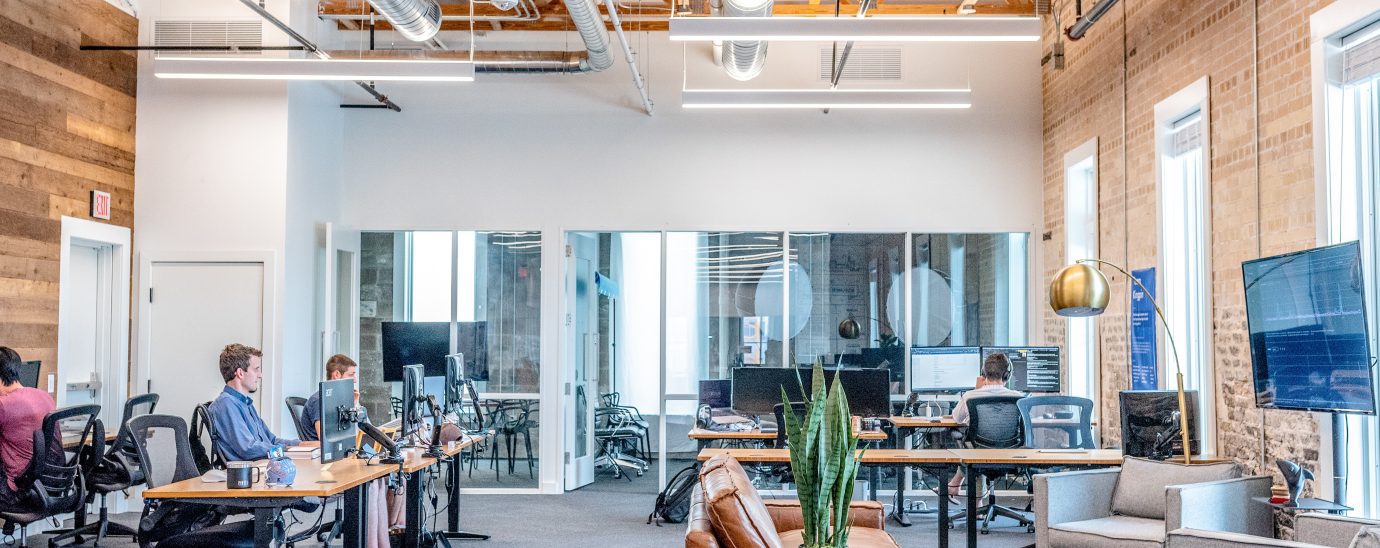How can digital solutions solve physical problems in the workplace?

Chris Bird, Head of Operations at Ricoh UK, details how organizations can overcome the physical hurdles in the office with digital solutions.
As the world of work becomes increasingly virtual, technological innovation is essential to success. Businesses now rely on digital solutions to solve physical problems daily, making their employees’ workspace more collaborative, more creative, and more efficient – whether that be at home or in the office. In the workplace, we depend on technology to support everything from room bookings to parking spaces. Even in face-to-face working environments, day-to-day operations rely heavily on this technology’s smooth running, especially when these in-person spaces must be aligned with remote ones. From hot-desking to on-site security cameras, businesses are using technology to adapt their existing spaces into sites that can function and succeed in the modern world.
Survival of the fittest
This kind of adaptability has always been essential to business survival. However, its necessity has been highlighted by the pandemic and consequences of Brexit. Supply chains, exchange rates and administrative requirements have come into question, pushing business leaders to be proactive about understanding these processes and evolve them for the better.
Similarly, technological advancements have increased the importance of proper data management and the need for cyber security. This should be taken as an opportunity to increase businesses safety and security and should be picked up by business leaders to consider what digital investment services can provide for their companies in the long run. Technology is the biggest enabler of adaptability, giving businesses leaders the ability to make conscious strategic decisions using reliable data trends to pivot when needed.
Unlocking the power of data
Data management is one of the top three ways businesses use technological innovations to update their current workspaces – whether at home or in the office. Online data-collecting spaces, such as spreadsheets, take valuable time and energy from employees – time and energy which could be better spent elsewhere – supporting customers, for instance.
With the right technology, businesses can use this opportunity to push change to the forefront of business strategy and leadership to reinvest in more relevant and accurate data collection and management methods. This can be achieved through various digital service solutions, including automation and RPA solutions which send information out to people without using human resources. Investing in these technologies is not only an investment in the company but in your employees– by prioritizing digital solutions to such problems, workers themselves are given more time to invest in other opportunities, such as upskilling or creative sessions.
Supporting the customer
Another workspace in which technological innovation has become paramount is customer premises. When businesses take the time and effort to harness their own technology, conscious, innovative solutions can change the game. For example, consider the use of 360 security cameras on delivery routes on-site. Augmented reality and the mapping of data trends can be used here simultaneously to place these cameras in the right location for the delivery route, making these cameras not only work better but require less of them. Embracing these digital solutions simultaneously is an excellent way for business leaders to adapt the workplace to the modern world and a sure way to change the game.
Digital solutions to physical problems are therefore revolutionizing the world of work, and business leaders need to reconsider the potential of the workplace to keep ahead. At Ricoh, something we have prioritized is using the solutions we offer to customers internally ourselves. This includes all different kinds of digital services, from online booking systems for meeting rooms, desks and parking spaces to a holistic approach to internal data sharing, which is more efficient and safer from a cyber perspective.
Previously, we used ‘hot-desking in the workplace, which left the success of an employees’ day at the office up to chance. However, always adapting, we transferred to an online booking system which employees can use to book a space in advance. Although this seems like a simple solution, it has a big knock-on effect in terms of efficiency and well-being. For example, with recent changes from remote to office workspaces, many people come into an office they have not used before. Walking up and down, looking for a space, can be daunting – but with a desk booked and waiting, they are suddenly in control of the situation and know exactly where they are supposed to go.
Many of our customers are also starting to look at their site portfolio and asking themselves how to optimize the workspace. Similarly, sensors can be used in offices to alert people about which rooms are free to hold a meeting, regardless of whether they have or have not been booked. These examples illustrate that even the smallest of digital solutions can have a huge impact on everyday physical problems, saving businesses time, money, and resources.
READ MORE:
- Why small businesses would benefit from the cloud
- Top 6 trends that will drive small business in 2022
- From Surviving to Thriving: Utilizing EPOS Technology to Navigate Pandemic Recovery
- Dropbox continues building tools to keep you organized at work and home
The future of work is therefore dependent on businesses uniting their digital and physical worlds, allowing leaders and employees alike to move through different workplace environments without jeopardizing their productivity or creativity. Digital solutions such as effective data management, augmented reality, cyber security and workplace management systems not only save valuable time and money in the long term but can help make the workplace more secure. At Ricoh UK, we want to provide a future where all workers, workplaces and workflows will be connected and thus contribute to a more sustainable society where people are empowered to innovate.
For more news from Top Business Tech, don’t forget to subscribe to our daily bulletin!
